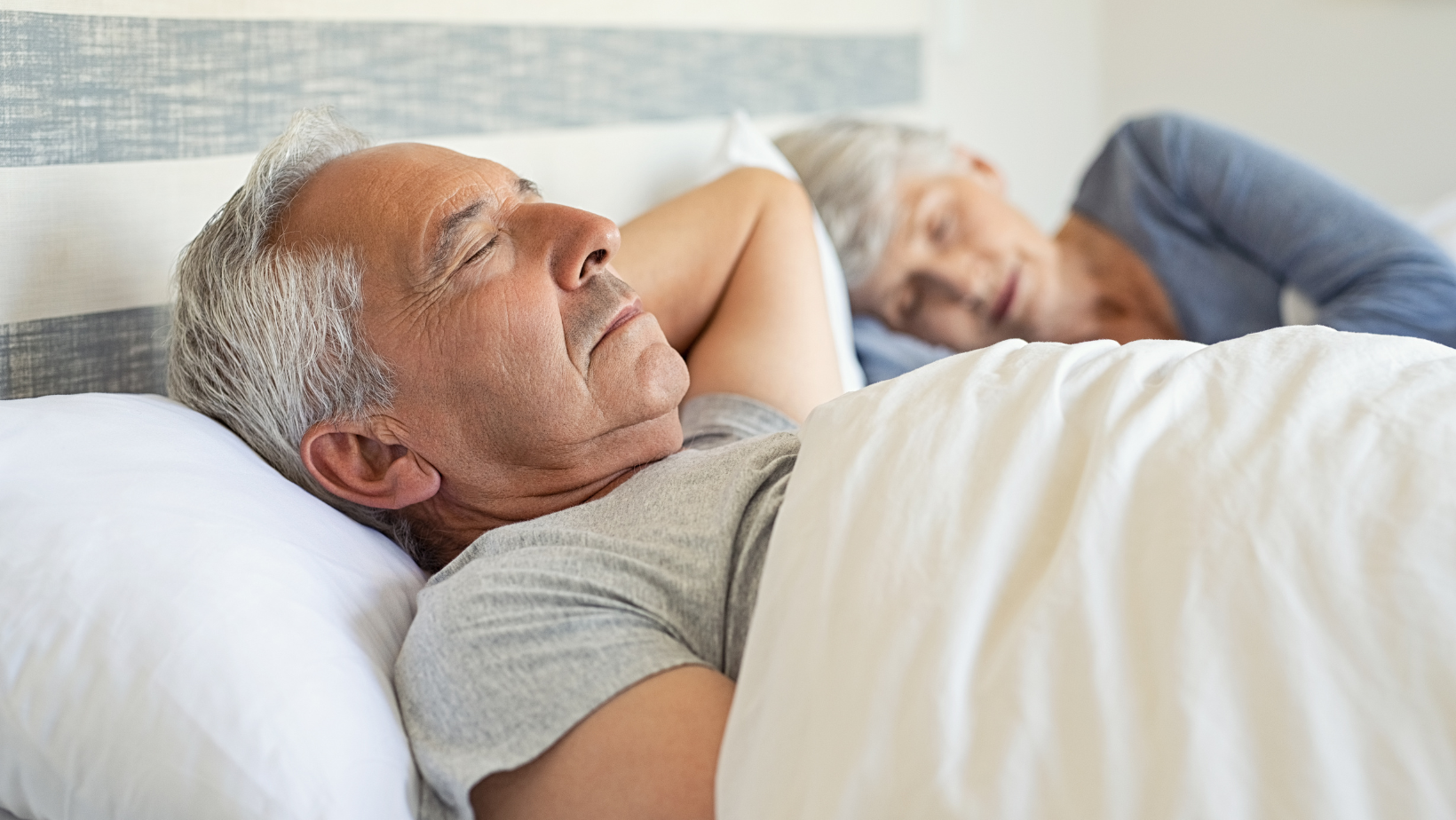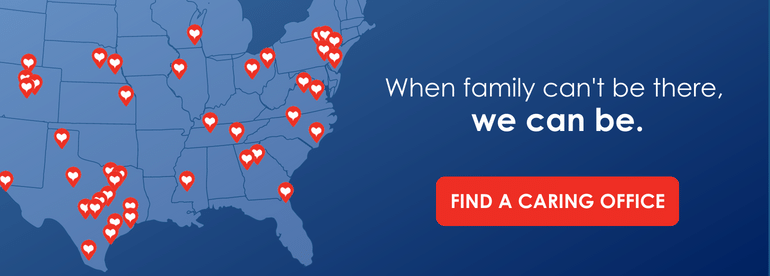A good night’s sleep can make all the difference. It can help boost your mood, reduce stress, lower risk for serious health conditions, and more. But as we get older, getting quality sleep can be more difficult. Falling asleep and staying asleep are common challenges for seniors. Here are some of the reasons why older adults have trouble sleeping well at night.
1. Medications
More than half of adults over 65 years old take 4 or more prescription medications. These medications could be the reason a senior can’t sleep well at night. Here are a few common medications that can impact sleeping patterns:
- Diuretics can cause a senior to need to use the bathroom more frequently, including at night
- Anticholinergics for COPD may act as a stimulant for older adults
- ACE inhibitors and ARBs increase potassium levels and cause aching muscles and bones
- Prednisone can cause seniors to feel more alert, impacting their ability to fall asleep
- Stimulants, like some antidepressants and anti-anxiety medications, can make it hard for a senior to relax and fall asleep
In addition to this list, there are many other medications with side effects that could impact sleep. Plus, each individual is different. So, if you or a loved one has trouble sleeping and you think it’s due to medications, talk with your doctor.
2. Lack of Physical Activity
Regular exercise can improve the quality of sleep that you get. However, as we get older, our bodies might not be able to exercise and move around like they once could. As seniors become more sedentary, they may find it harder to get quality sleep at night.
The time of day a senior exercises could also impact sleep. Some individuals report poor sleep when they exercise in the evening, while others report that it makes them more tired. So, pay attention to your body’s sleep signals in relation to your workout schedule.
RELATED CONTENT: Best Exercise Equipment for Seniors
3. Sleep-Related Conditions
Various sleep-related conditions can make it difficult to fall asleep or stay asleep for individuals of any age. Here are some of the common sleep-related conditions.
- Obstructive sleep apnea happens when the muscles in the back of the throat relax too much while you’re sleeping. This can actually block the airway.
- Central sleep apnea happens when the brain doesn’t efficiently send signals to the muscles that control breathing while you sleep.
- Restless leg syndrome is an uncontrollable urge to move the legs. Usually, it happens to seniors when they are sitting or lying down. It can range from feeling like tingles to sharp pains. It can usually be eased by standing up and moving around.
- Rapid eye movement (REM) behavior disorder causes an individual to physically move or even speak while sleeping due to vivid dreams. These movements are often sudden and could actually be so forceful as to cause injury to a senior.
- Circadian rhythm disorder refers to problems with the body's internal clock, or circadian rhythm. This rhythm tells your body when it’s time to be awake and when it feels tired. These rhythms reset about every 24 hours. This type of disorder can cause an individual to have difficulty falling asleep, staying asleep, or waking up during a sleep cycle.
- Snoring can actually impact the quality of sleep of the snorer! Loud snoring could wake up a senior and regularly disrupt their sleep. About 1 in 4 individuals snore regularly, and the older we get, the more likely we are to snore.
4. Incontinence
Seniors with incontinence may also struggle with sleep. The urge to use the bathroom could keep them from falling asleep and could wake them up in the middle of the night, disrupting quality sleep time.
There could be several different reasons that a senior experiences incontinence, including medications, but the most common reason is simply age. As we get older, our muscles get weaker, making it harder to control the bladder and bowels. However, specific products can help manage incontinence in seniors, making it easier to get a good night’s sleep.
RELATED CONTENT: Strategies to Help Reduce Incontinence
5. Poor Sleeping Habits
A senior’s own routine could be causing them to have trouble sleeping. We mentioned that exercising near bedtime could impact sleep, but so could other habits, including the following:
- Taking lots of naps during the day
- Drinking alcohol before bed
- Drinking coffee or other caffeinated drinks before bed
- Eating a large meal before lying down
- Going to bed at different times each night
These activities could impact a senior’s sleep schedule. And getting a good night’s sleep could be just a matter of adjusting daily habits.
6. Chronic Health Conditions
Approximately 85% of seniors have at least one chronic health condition, and a majority of them actually have two or more chronic conditions! Some of these chronic health issues could be keeping them awake at night.
- Alzheimer’s & Dementia: Changes in the brain because of Alzheimer’s disease and dementia could cause a senior to get drowsy during the day, making it hard to stay asleep at night.
- Cardiovascular disease: 39% of individuals with cardiovascular disease reportedly slept fewer than 6.5 hours each night.
- COPD and other lung issues: Lung problems, including asthma, can make it difficult to breathe and can lead to poor quality of sleep. It can also increase the risk of obstructive sleep apnea.
- Chronic pain: Chronic pain or arthritis can make it difficult or even impossible for a senior to get comfortable enough at night to fall asleep.
- Acid reflux or gastrointestinal conditions: Gastrointestinal conditions can make a senior uncomfortable when they are trying to fall asleep or even wake them up from sleep.
Lack of quality sleep can increase a senior’s health risks — especially for depression and falling down. If a senior in your life is struggling to get quality sleep and their quality of life is being impacted, encourage them to seek medical assistance. There are treatment options available that could help, including medications, lifestyle changes, therapy, and more.


